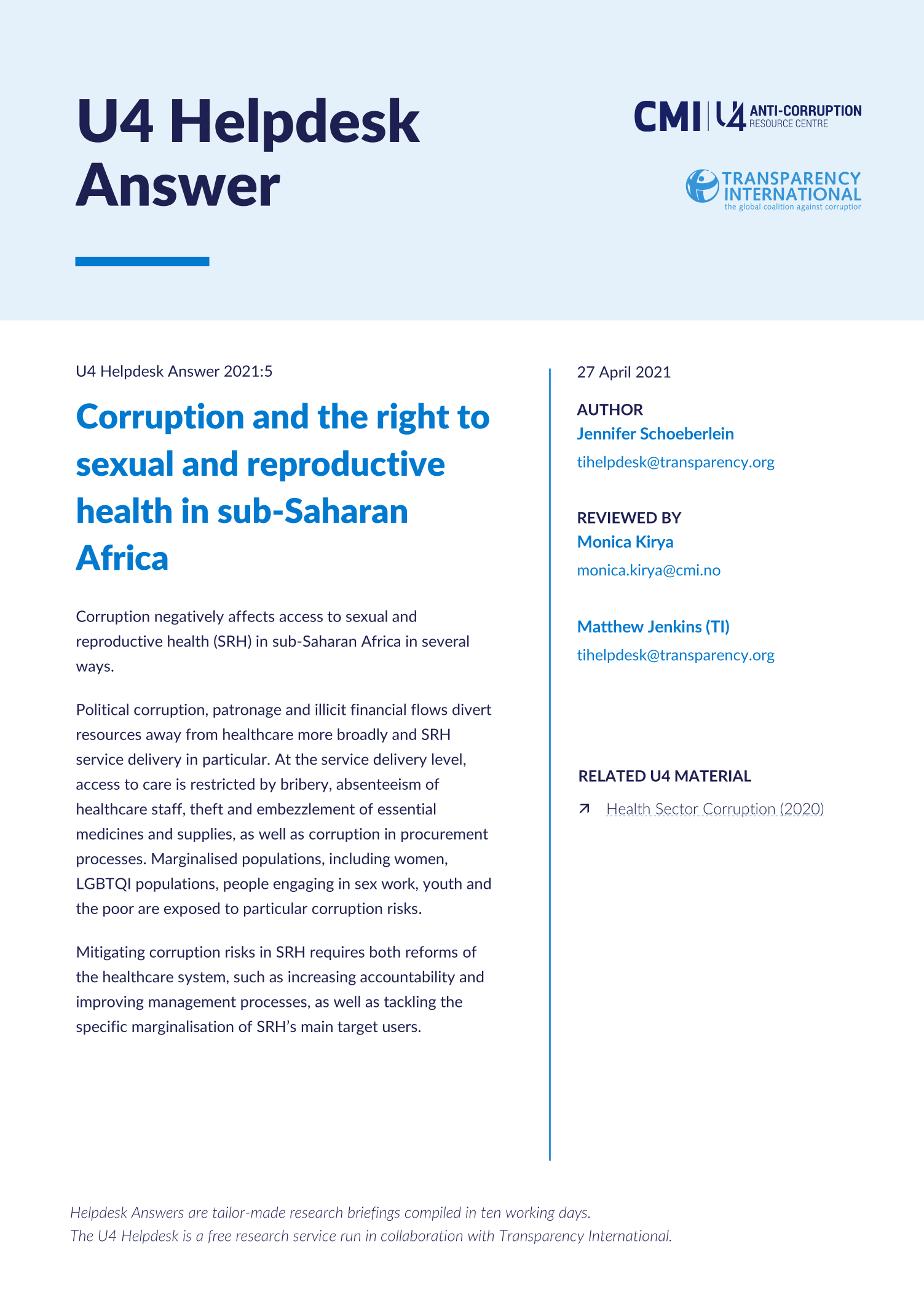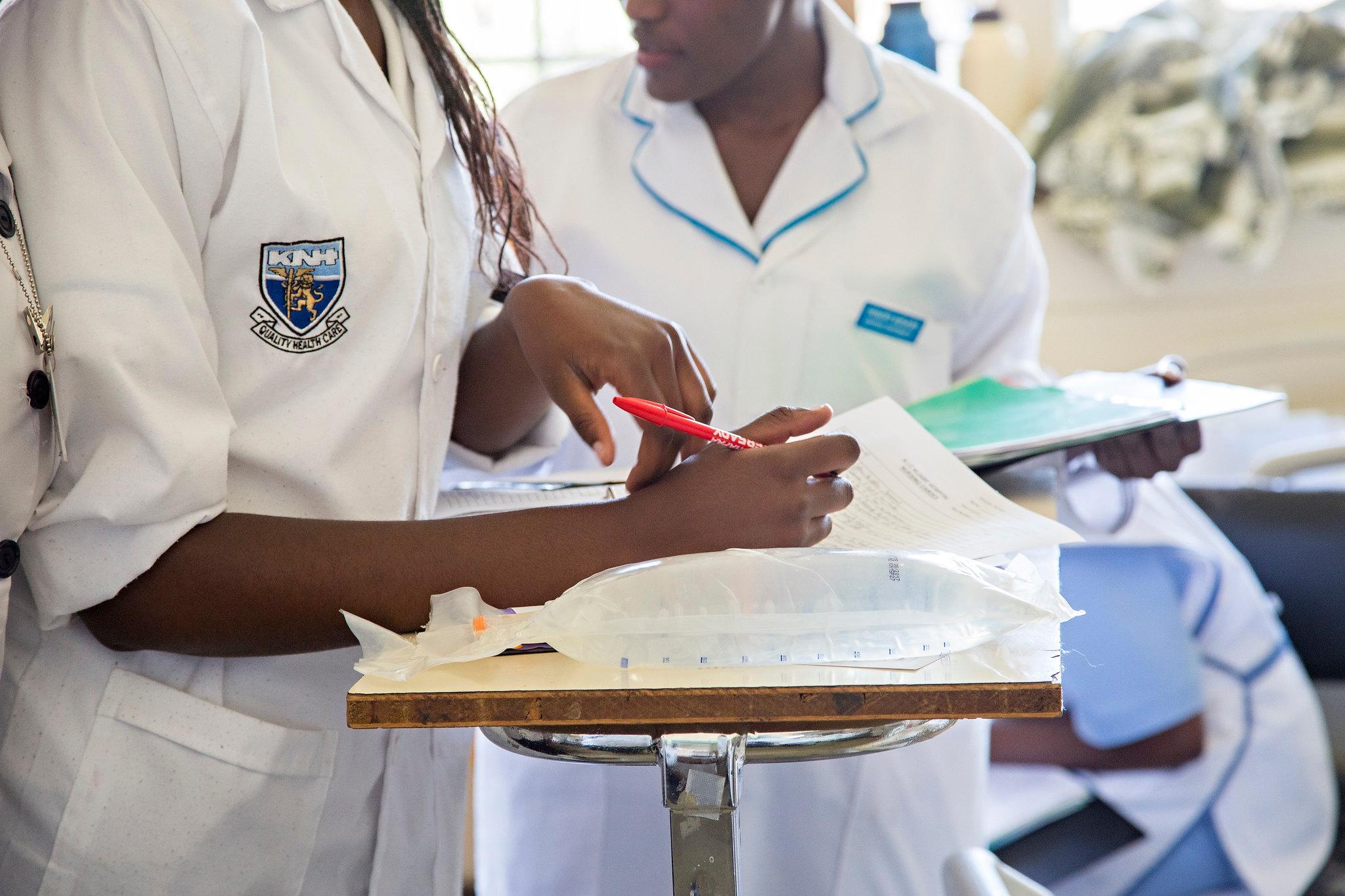Main points
- Sexual and reproductive health rights challenges in SSA include limited access to maternal health, high maternal and infant mortality, high rates of HIV infections and unsafe abortions.
- Challenges are compounded by weak healthcare systems, healthcare funds lost to corruption and restricted access for patients due to petty corruption.
- Women, youth, the rural poor, sex workers and LGBTQI individuals face some of the biggest challenges in realising their SRHR due to stigmatisation, economic weakness and a lack of political power.
- Limited accountability and transparency in the healthcare system and vulnerabilities of patients facilitate corruption in SRH service delivery.
- As yet, insufficient and inadequate data hampers evidence-based decision and policy making.

